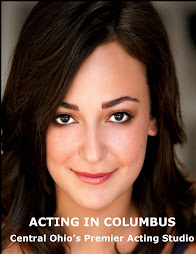 Most people associate the casting director with casting big name stars for film, stage, and television productions. However, the casting director usually defers to the main director on lead roles. Instead, the casting director must work on filling the roles of all spoken parts, and on overseeing the hiring of all extras.
Most people associate the casting director with casting big name stars for film, stage, and television productions. However, the casting director usually defers to the main director on lead roles. Instead, the casting director must work on filling the roles of all spoken parts, and on overseeing the hiring of all extras.In productions with lots of people, the casting director and his or her assistants may have to see thousands of people to fill hundreds of rolls. The casting director usually gets some direction from the director of the film, like “I need people who are between thirty and forty,” so he or she can make decisions about who will best fit these roles. Essentially the goal of the casting director is to employ people who will fit with the director’s, and possibly the producer’s, artistic ambitions.
Usually, actors go through several casting calls. At first, assistants may oversee auditions. If the assistants decide that the person auditioning for a role may be right for a part, then the person is given a callback. There may be several callbacks. The casting director who may only be present at the last audition usually makes final decisions. Unlike many extras or aspiring actors, most moderately to well-known stars do not have to go through as many callbacks to be seen by a casting director. A film director who wants a certain person for a role may initiate this audition process, or the actor’s agent may initiate it. Often the casting director will immediately hear a person read, or sing for a role, though callbacks may be involved if the casting director has not made a final decision.
Casting directors are often criticized for their choices regarding casting. Frequently, casting directors are accused of being sexist, racist, ageist, or otherwise discriminating. Criticism of casting directors arises from the belief that they cast actors that aren’t necessarily a true reflection of society. Usually, the casting director focuses on the artistic vision of the director, without preference to his or her own ideas on who should play a role. Thus decisions about the race, gender, or size of those employed are usually out of the casting director’s hands.











